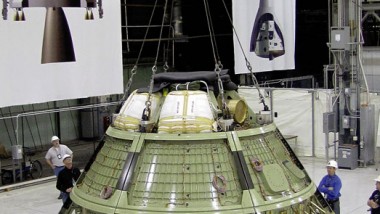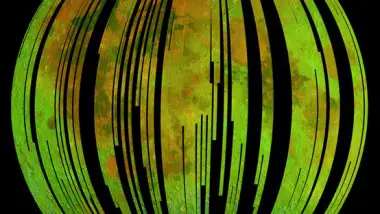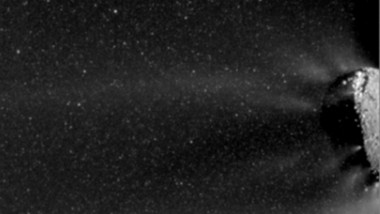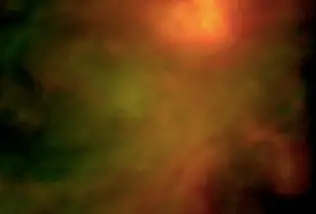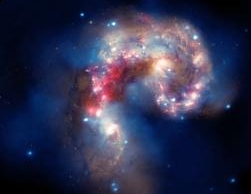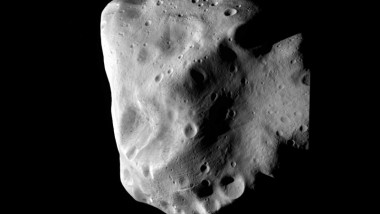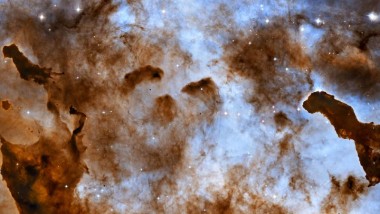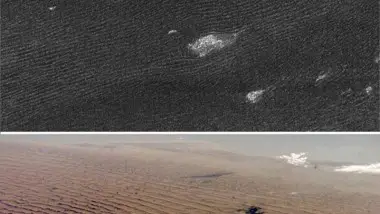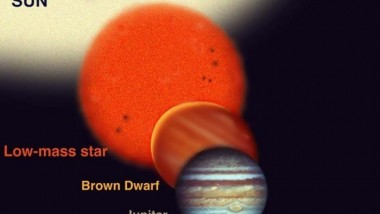On October 11, 2010 President Barack Obama canceled NASA’s Constellation Program. The program aim was to develop the means to carry astronauts to the International Space Station and later to the Moon, and Mars. Five months after it was canceled. ...
New Type of Moon Rocks Discovered
Scientists at Brown University in Providence, Rhode Island, have discovered a new type of moon rock thanks to the Moon Mineralogy Mapper instrument aboard the Indian Space Agency’s Chandrayaan-1 spacecraft. The imaging spectrometer took the first high resolution pictures of ...
Cosmic Snow Storm Observed
The National Aeronautics and Space Administration’s EPOXI mission recently observed a cosmic snow storm originating from the comet Hartley 2. Consisting of both ice particles spewing from the ends of the comet and water vapor escaping from the middle of ...
First SOFIA Missions Completed
The Stratospheric Observatory for Infrared Astronomy, or SOFIA, successfully completed three planned scientific missions in phase one of the program, remaining airborne for ten hours on November 30, 2010 followed by additional overnight flights on the evenings of December 2nd ...
Displaced Orbits Possible
Scientists at the University of Strathclyde in Glasgow, Scotland are claiming that maintainable displaced orbits – orbits above or below the standard geosynchronous orbits – may be possible with the help of solar sails. Scientist and science fiction writer Robert ...
NASA Witnesses a Galactic Spectacle
NASA has recently released a marvelous image of two tangled galaxies, captured using three different telescopes: the Chandra X-ray Observatory, the Hubble Space Telescope, and the Spitzer Space Telescope. A new image of two tangled galaxies has been released by ...
Heavy Metal Rock Takes Center Stage
The European Space Agency’s Rosetta spacecraft recently completed a flyby of the asteroid Lutetia, which allowed it to examine closely this celestial object, made mostly of metal. Thanks to NASA’s instruments, installed on the spacecraft, the high quality pictures could ...
Carina Nebula
In the cold vacuum of space, radiation from massive stars carves away at cold molecular clouds, creating bizarre, fantasy-like structures. These pillars of cold hydrogen and dust, imaged by the Hubble Space Telescope, are located in the Carina Nebula. Violent ...
Cassini Helps with Dune Mystery
A recent paper published by Japanese astronomer Tetsuya Tokano suggests a solution for one of the mysteries found on Saturn’s moon, Titan. Using data retrieved from the Cassini spacecraft, he designed a model that solves one of the moon’s paradoxes. ...
Brown Dwarf Found Orbiting a Young Sun-Like Star
An international team of astronomers has recently captured the image of a new star, a very young brown dwarf. They discovered a unique, rare phenomenon: the proximity between the brown dwarf and its enormous stellar companion is as close as ...

